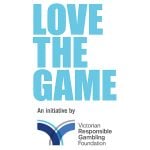

For most people, the visual picture of a gambler is someone playing the pokies, or at the casino. But according to a recent study led by Deakin University, three out of four children who watch sport are making a strong association between enjoyment of a game and putting money on the result, meaning that the person we typically think of as a ‘gambler’ is getting younger.
This might sound shocking to many parents, but considering the advent of online betting and phone apps, which make gambling easier than ever, it makes sense, because it seems to be everywhere.
Louise Glanville, CEO of the Victorian Responsible Gambling Foundation warns that it’s something parents need to think about earlier than they expect, before habits become ingrained.
“Kids think betting and sport go together. We are working with sporting clubs, schools and individuals in the community to call out this new normal and allows us to talk about the potential risks involved with gambling,” Glanville tells Mamamia.
To help parents, the organisation has a campaign titled “Love the game – not the odds“, designed to inform and encourage parents to break the association between the enjoyment of watching sports, and putting money on a game.
“You might not think your child is associating the enjoyment of sport with betting on the result – but research shows, they may well be,” Glanville says.
“The concern is that research shows the prevalence of sports betting advertising normalises the idea of gambling to young people – and this needs to change.”
